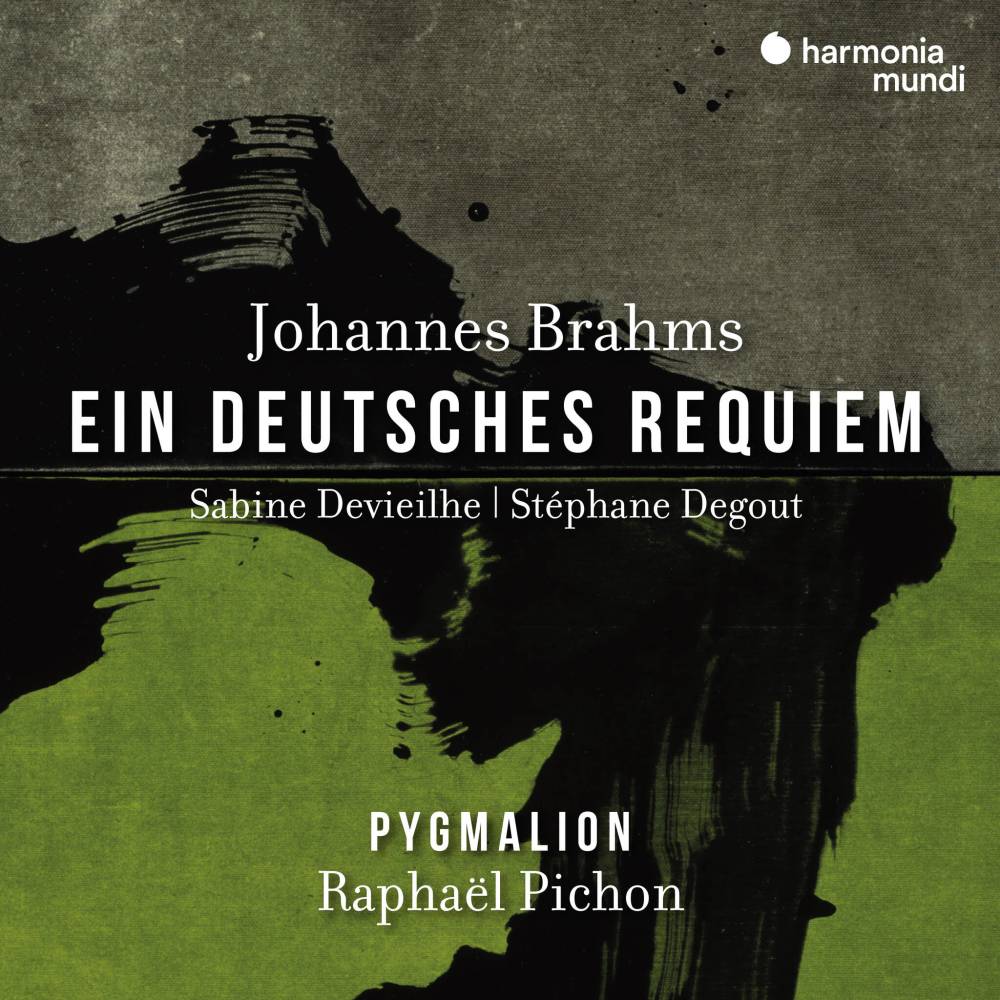New music: Doja Cat, Ed Sheeran, Rich Brown, Pygmalion
A review of this week's album releases
Advertisement
Read this article for free:
or
Already have an account? Log in here »
To continue reading, please subscribe:
Monthly Digital Subscription
$1 per week for 24 weeks*
- Enjoy unlimited reading on winnipegfreepress.com
- Read the E-Edition, our digital replica newspaper
- Access News Break, our award-winning app
- Play interactive puzzles
*Billed as $4.00 plus GST every four weeks. After 24 weeks, price increases to the regular rate of $19.00 plus GST every four weeks. Offer available to new and qualified returning subscribers only. Cancel any time.
Monthly Digital Subscription
$4.75/week*
- Enjoy unlimited reading on winnipegfreepress.com
- Read the E-Edition, our digital replica newspaper
- Access News Break, our award-winning app
- Play interactive puzzles
*Billed as $19 plus GST every four weeks. Cancel any time.
To continue reading, please subscribe:
Add Winnipeg Free Press access to your Brandon Sun subscription for only
$1 for the first 4 weeks*
*$1 will be added to your next bill. After your 4 weeks access is complete your rate will increase by $0.00 a X percent off the regular rate.
Read unlimited articles for free today:
or
Already have an account? Log in here »
Pop
Doja Cat
Vie (Kemosabe)
Doja Cat had been dropping hints that her newest album would be filled with ’80s flavour — from the big hair and exaggerated structure of her VMAs outfit to the retro dance moves in the music video for her single Jealous Type. Vie speaks for itself.
The California rapper-singer born Amala Ratna Zandile Dlamini leans back into the pop genre on her fifth studio album, incorporating some of the most iconic music styles from the past to create something innovative and fun. And don’t worry, she still includes her signature rap verses in every song.
Cards and Jealous Type start the album off distinctly ’80s-esque with synths and punchy snares. Lyrically, Doja Cat toys with the idea of letting herself love someone, singing in the former, “Maybe I’ll fall in love baby / Maybe we’ll win some hearts / Gotta just play your cards.”
The two are album highlights, as well as Aaahh Men!, a spirited track with intense instrumentals and varied vocals from whispers to shouts as Doja Cat expresses the sometimes-disappointing emotions that come with dating.
More so than the frustration, she expresses the fun of falling in love throughout her album. She dives headfirst in Silly! Fun!, gushing, “You’re my person / This my first time I’m in love.”
Callbacks to the sounds of the ’80s permeate Vie, such as in All Mine with falsettos and a laid-back R&B style reminiscent of Prince, as well as album closer Come Back, which sounds like it could be in the final scene of a John Hughes movie.
Doja Cat’s experimentation with the nostalgic sound creates some of the most enjoyable songs on the album, as well as some of the most boring — one of the identifiers of ’80s music is its repetitiveness.
Overall, Vie succeeds more than it fails in its ’80s-inspired experimentation, offering catchy choruses with rap verses that add some totally tubular spice. ★★★½ out of five
Stream: Aaahh Men!, Jealous Type
— Kiana Doyle, The Associated Press
POP
Ed Sheeran
Play (Gingerbread Man)
Ed Sheeran has long sought to bring people together with his music, whether it be his emotionally resonant acoustic ballads or unproblematic, danceable pop hits. Play, his eighth studio album, stays in that familiar lane for the most part.
In his quest, Sheeran has maintained an everyman quality by carefully evolving with the status quo (while, largely, removing himself from public discourse, save his copyright court win and more recent promotional pop-ups in everyman places, such as a New York ice cream shop). The esthetic of Ed Sheeran, global star still matches that of Ed Sheeran, up-and-coming troubadour.
Most of the time, it’s still just Sheeran, his guitar and his loop pedal against the world.
Sheeran turned to new collaborators for a couple songs that are already established hits. The addictive Sapphire features Indian singer Arijit Singh, who ranks among Spotify’s most popular artists globally. A Farsi version of the single Azizam, written and produced with Ilya Salmanzadeh, Savan Kotecha and Johnny McDaid, was released in April featuring Iranian singer Googoosh.
Sheeran isn’t just eyeing the U.S. and U.K. charts here — he’s playing for cross-cultural domination, and having fun while doing it.
The rest of the tracks, those that feel more classically Sheeran, see old themes recycled: Old Phone provides him the space to remember old friends and reminisce about his changing personal life. The conceit of the sappily sweet Camera — “I don’t need a camera to capture this moment” — comes in conflict with that of Sheeran’s own beloved Photograph from 2014’s Multiply.
Sheeran flexes his pen on Opening, the album’s first track. Bounded by glittery verses about boundaries, he raps about his family, his mental health, that court case, fame and what comes next. Sheeran wants to be for everyone. And to do that, he’ll still be an everyman. ★★★ out of five
Stream: Opening, Sapphire
— Elise Ryan, The Associated Press
JAZZ
Rich Brown
Nyaeba (Whirlwind)
Toronto’s Rich Brown is a highly sought-after electric bass player on both six-string and four-string fretless instruments. He carries on the tradition of the melodic capacity of the electric bass as established by Jaco Pastorius. This solo release is a stunning display of what the instrument can do. Painstakingly put together from multiple studio tracks, it gives full rein to Brown’s wide-ranging melodic style.
The album title refers to an imaginary West African griot, or storyteller who travels and shares his experiences in music. The music is at once haunting, restless and always evocative. Like the griot, Brown is a consummate storyteller with his music. The commitment to melody is complete, with the griot’s stories hinting at Eastern, African and Brazilian influences. The emotional impact grows with each listen.
The first track, Ukudlala, refers to a Zulu word meaning “to play,” and moves from a jaunty opening groove to an increasingly complex but still playful mood. The Sum of Our Tears moves into deeper expression, from loss and depression to hope and faith.
Heart of a Lonely Woman establishes a bass continuo with rhythmic foundation that moves slowly into a terrific cover of Ornette Coleman’s Lonely Woman. The title track has a muffled “voice,” created solely on his instrument, over a driving African rhythm. This rhythm extends through Kalagala Ebwembe and Sowetoiera.
A fascinating track is called Turiyasangitananda, meaning the Transcendental Lord’s Highest Song of Bliss. Not only a reference to the peace Brown achieved through meditation, it’s an ode to Alice Coltrane’s debt to meditation, explained in her own recorded voice.
This is serious and deeply personal music. It should be widely heard as a remarkable, intense and powerful gift from a remarkable musician. Brown shares his “griot” music with no holds barred. It is a winner. ★★★★★ out of five
Stream: The Kingdom of Heaven Is Within; Heart of a Lonely Woman
— Keith Black
CLASSICAL
Pygmalion
Ein deutsches Requiem (Harmonia Mundi)
French conductor Raphael Pichon leads his own group, Pygmalion, through Brahms’ masterful choral work Ein deutsches Requiem, which never fails to stir the soul with its offering of hope and consolation to the bereaved.
The new release also features soloists Sabine Devieilhe, soprano, and Stephane Degout, baritone, who take turns bringing the sacred text to life.
Many particularly stirring moments abound, including during its second — and longest — movement of seven, II. Denn alles Fleisch, es ist wie Gras, a funeral march notably scored in triple time and performed by the chorus with orchestra. Pichon sensitively guides the ensemble through its intensely focused thematic material, while also ensuring a satisfying balance between instrumentalists and singers.
Highlights include hearing Degout’s robust, full tone during III. Herr, lehre doch mich, dass ein End emit mir haben, later also spotlighted in VI. Denn wir haben hie keine bleibende Statt. Devieilhe provides vocal counterpoint to Degout, with her crystal clear soprano and soaring range fully displayed during her first entry V. Ihr habt nun Traurigkeit.
Another standout is chorus IV. Wie lieblich sind deine Wohnungen, Herr Zebaoth, with its smoothly overlapping entries skilfully blended together, further underpinned by the orchestra as the movement builds towards its more textural, fugal section.
Last but not least, the work penned in the wake of the German composer’s own beloved mother in 1865, and based on the German Luther Bible rounds out with its finale chorus, VII. Selig sind die Toten, die in dem Herrn sterben, leaving listeners in the lap of God, while filled with comforting hope for all those left behind. ★★★★½ out of five
Stream: III. Herr, lehre doch mich, dass ein End emit mir haben; IV. Wie lieblich sind deine Wohnungen, Herr Zebaoth
— Holly Harris





